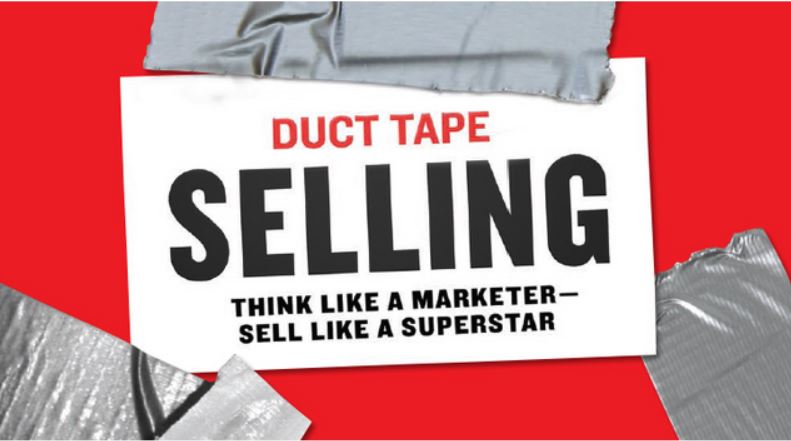
If you need a guide to selling in the digital age, it has arrived.
I received an advance copy of John Jantch’s new book Duct Tape Selling: Think Like a Marketer, Sell Like a Superstar
And it’s a little scary.
John does not pull any punches in this book. It’s direct, honest and even in your face about what it is going to take to sell successfully in a world where your biggest competitor might be inbound leads from Hubspot.
I was lucky enough to be able to interview the author about this important new book …
Mark Schaefer: John, I love the new book. It’s a bold manifesto for radical change in the sales mindset, techniques and leadership. And although this is a natural extension of the Duct Tape brand, there is nothing really simple in what you’re proposing, is there?
John Jantsch: Is anything about sales really simple? I guess it comes down to how you look at what your end game is. If the long view is the make a sale, then this might seem like a big commitment, but if you recognize that you’re building an asset, one that serves your clients and your organization, then you just might view this as an investment in your business or career.
Mark: You’re unequivocal in your position that a salesperson today must take a leadership role in content creation, social media engagement and even public speaking. As I think about the sales people and sales teams I grew up with, I would say 90 percent or more would actively resist these changes. Am I wrong?
John Jantsch
John: I’m hoping you’re off by a bit! There’s no question that a cultural shift in both the sales and marketing leadership must occur for this change to manifest in the best possible form, but there are signs that organizations and individual sales professionals are waking up to the power of this approach.
Obviously it is much harder for a salesperson who is measured solely on dials to take this longer term view, but as this change occurs so too will compensation models and sales metrics. Eventually this may lead to hiring that is based in some new skillsets.
Mark: You’re pretty bold in your claims that unless salespeople change dramatically and change now, they are at risk of being a commodity order taker in a world of inbound, content-related leads. One thing you don’t directly address in the book is the raw skillsets required for the new social seller. Would we better off hiring natural content creators and social media fanatics and then teaching them to sell?
John: The book’s final section addresses the role of the new sales coach or leader. Chapter 17, Rethink Hiring, addresses the need to think far outside the traditional sales closer model but stops short of suggesting that you hire journalists and social media fanatics. The answer is somewhere in between.
Flexibility, analytical thinking and a knack for service are the traits that just might define today’s salesperson.
Mark: I have been brought in to do a lot of social sales training. I certainly teach (and even preach) about the ideas you have here. And although the initial reception might be enthusiastic, I find change is difficult to sustain when the training is over. What steps should a leader take to actually sustain the recommendations in your book?
John: The first thing you have to realize is that this isn’t training – this is a mindset shift and that happens over time through consistent reinforcement and adoption at the highest level.
If this mindset shift is stuffed into the can of “social selling” it will simply perform as this week’s new tactic and lose its luster quickly. Integrated selling means fully integrated across the entire customer journey involving every element of marketing, sales, and service.
Mark: Writing a book is difficult work, especially one like this with so much original insight. How are you different after writing this book?
John: I think it’s hard to know for sure as it’s a gradual growth but I do certainly acknowledge that I have a renewed appreciation for the need to think, act, market and sell on a more personal level once again.